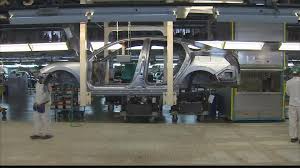Honda is considering moving some of its vehicle production from Canada and Mexico to the U.S. in response to President Donald Trump’s latest round of tariffs. The company’s goal is to ensure that 90% of U.S. sales come from vehicles made domestically, according to Japanese newspaper Nikkei. Honda is specifically looking at shifting production of its CR-V and Civic models to the U.S. and plans to increase American output by 30% over the next few years by adding more shifts and employees.
Mexican Economy Minister Marcelo Ebrard said Tuesday that Honda executives told officials there are no changes planned for production in Mexico at this time. This statement comes amid growing uncertainty in the auto industry due to shifting trade policies and pressure from the Trump administration to increase domestic manufacturing.
BREAKING: Honda to cut production in Canada and Mexico and increase manufacturing in the United States.
— Ian Jaeger (@IanJaeger29) April 15, 2025
HUGE!! pic.twitter.com/Q16GeIygxD
Trump has imposed new tariffs targeting the auto industry as part of a broader strategy to revive American manufacturing. The administration claims foreign automakers have benefited from “unfair subsidies and aggressive industrial policies,” while U.S. production has “stagnated.” As part of that effort, Trump imposed a 25% tariff in April on all imported passenger vehicles, including sedans, SUVs, crossovers, minivans, cargo vans, and light trucks.
The tariffs also apply to crucial automotive parts such as engines, transmissions, powertrain parts, and electrical components. The administration added that there are “processes to expand tariffs on additional parts if necessary.” A separate 25% tariff on auto parts is scheduled to begin May 3. Initially, parts that comply with the United States-Mexico-Canada Agreement (USMCA) will be exempt.
However, the Commerce Department is developing plans to eventually apply the tariffs to non-U.S. components and is expected to create a broader process for doing so by late June. The administration argues these steps will strengthen U.S. manufacturing, though industry experts are skeptical.
The National Automobile Dealers Association has pushed back, warning that tariffs will worsen car affordability. They note that “no vehicles are built or assembled with 100% domestically made parts,” meaning price increases are likely, regardless of where the final assembly takes place.
Honda isn’t alone in adjusting its production strategies. Hyundai announced in March it would invest $20 billion to expand its U.S. manufacturing presence. The company plans to put $5.8 million toward a next-generation steel plant that will supply two of its U.S. factories and employ more than 1,400 people.
The rest of Hyundai’s investment will go toward expanding vehicle production in the U.S. Meanwhile, Nissan CEO Makoto Uchida said Trump’s tariffs could push the company to move some operations out of Mexico, further highlighting the far-reaching effects of the administration’s trade policies.
